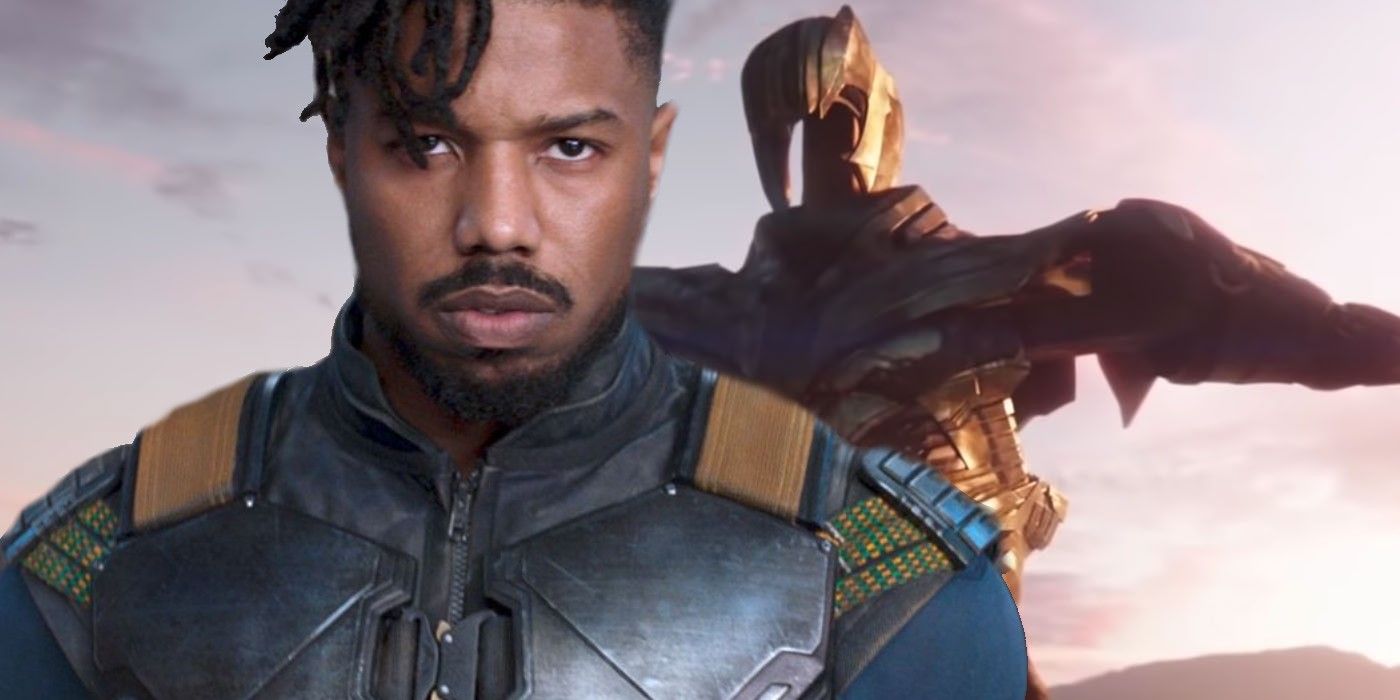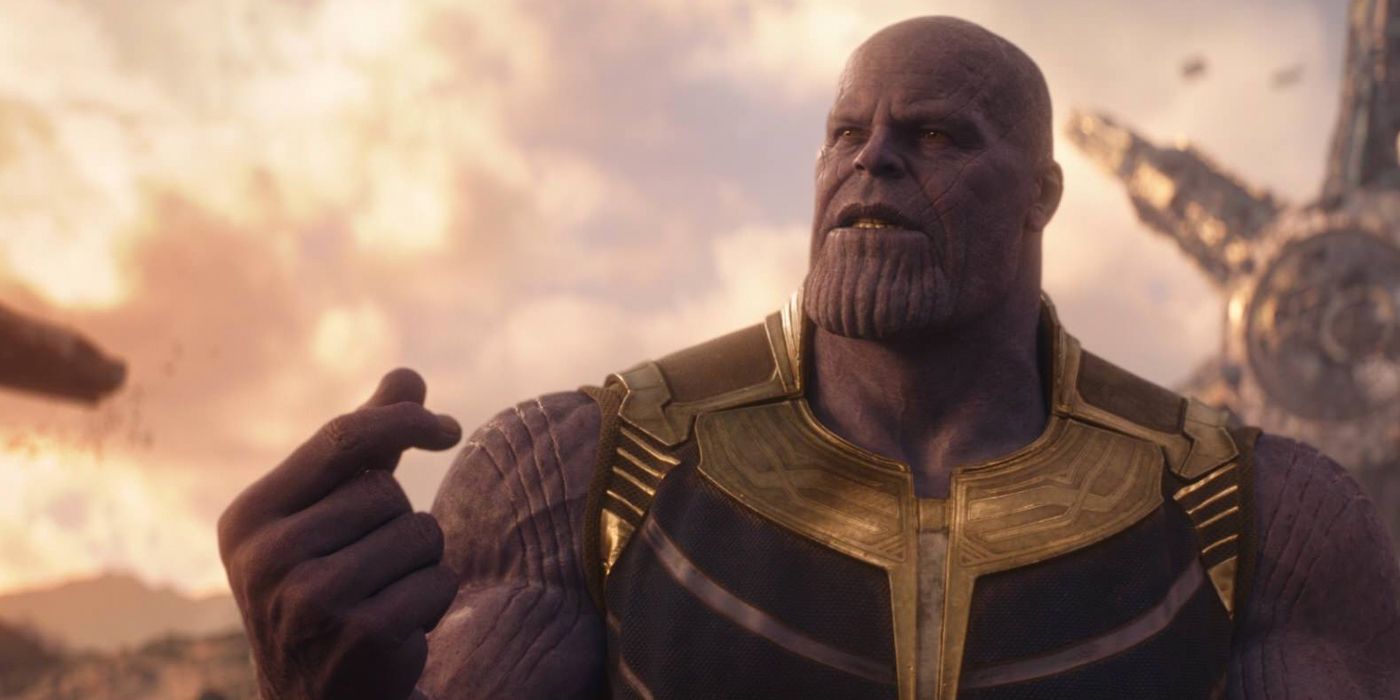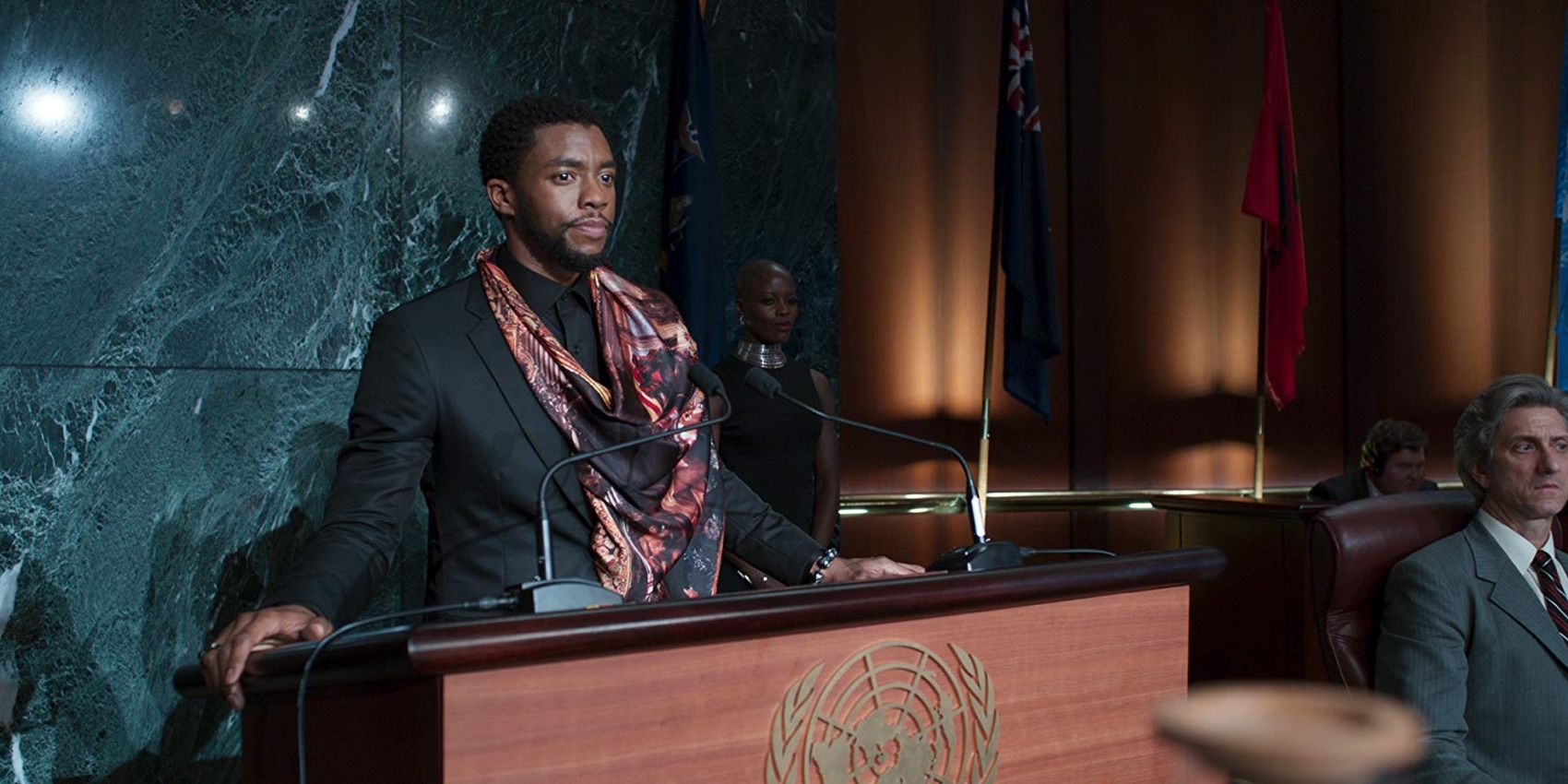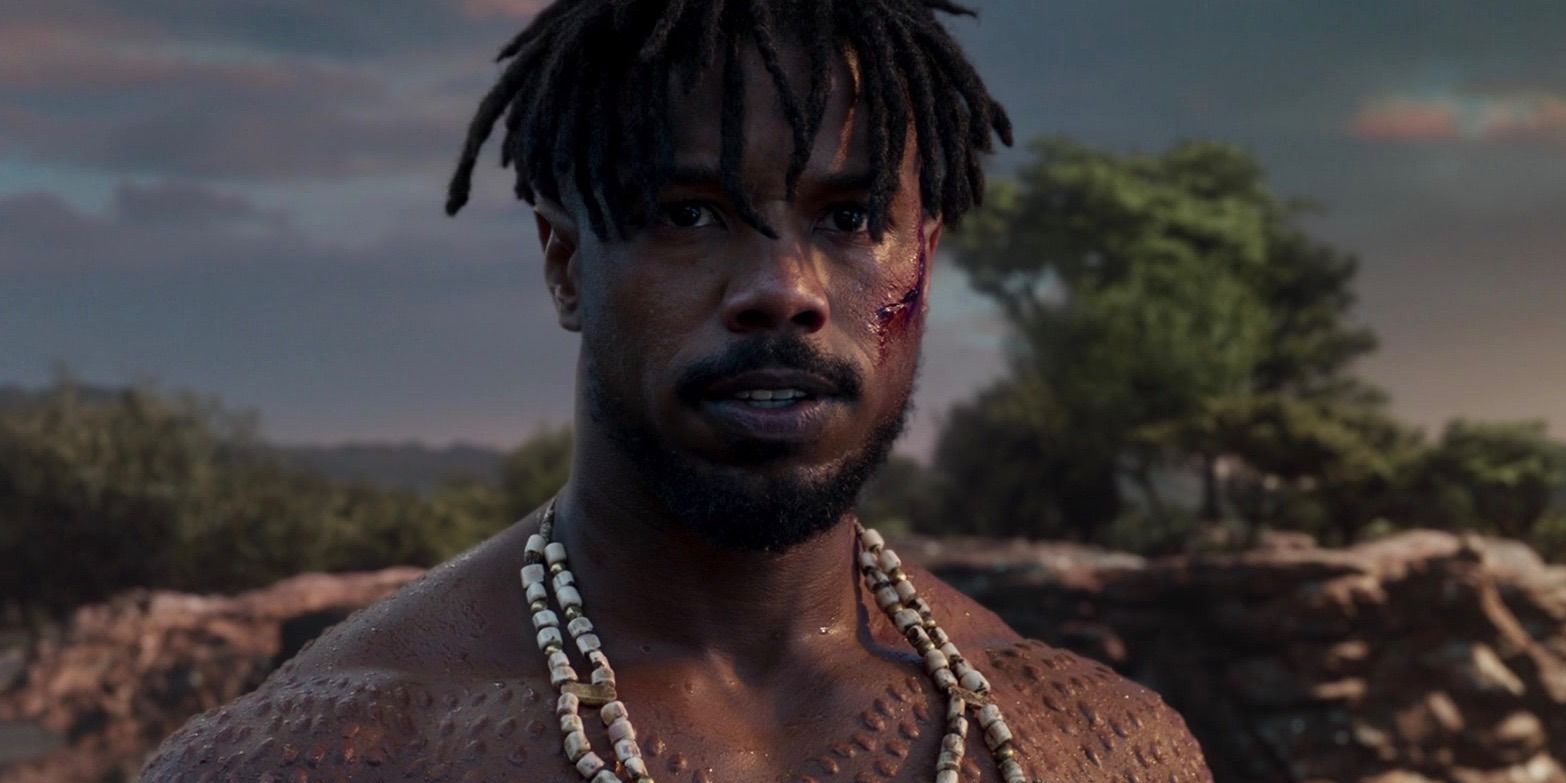Black Panther's Erik Killmonger is the only MCU villain who can truly claim to have scored a victory of sorts. The Marvel Cinematic Universe has been an unmitigated success, but perhaps the most frequent pitfall of the series has been its villains, especially the one-shot baddies who come and go within a single movie. The likes of Kaecilius in Doctor Strange, Ronan the Accuser in Guardians of the Galaxy and Yellowjacket in Ant-Man are just several examples of MCU villains who failed to make a lasting impression, launching their grand nefarious plans before being swiftly put down by Marvel's finest. Loki is one notable example, but his popularity and longevity came more from being a charismatic rogue with antihero tendencies, not from a track record of villainous success.
There are two major exceptions to the typical MCU villain trend: Black Panther's Killmonger and the franchise's overarching antagonist, Thanos. And on the surface, it would appear that Thanos was the more effective of the pair, at least in fictional terms. The purple, wrinkly-chinned Titan actually achieved his aim of assembling the Infinity Stones and wiping out half of all life across the universe - more than any MCU villain had ever managed to accomplish previously. Such was Thanos' sense of victory, he retired to a quiet farm and readily accepted execution at the hands of Thor, since his true goal had already been fulfilled.
In terms of death toll, superhero scalps and widespread infamy, no MCU hero comes close to matching Thanos. But thinking more broadly and taking a "big picture" view of the MCU, the one villain who can claim to have succeeded in their aims isn't the Mad Titan at all, but Killmonger.
Thanos Didn't Win In The MCU
Avengers: Infinity War shockingly ends with Thanos' fateful snap, as half of all life turns to dust in mere moments. The scale of death is unfathomable, and every single inhabited planet is altered as a result of Thanos' defining act. When Avengers: Endgame picks up the action, the Avengers themselves (or what's left of them) are desolate and defeated, and even after living up to their title and taking Thanos' head, the burden of the snap hangs heavy upon the universe. At this point, Thanos is unquestionably victorious.
Of course, Avengers: Endgame sees the surviving heroes embark on their catchy-sounding "Time Heist," which culminates in Hulk using the Infinity Stones to return the lives lost as a result of Thanos' original finger snap. Adding injury to insult, Tony Stark uses the gauntlet again to finish off Thanos and his entire army before Steve Rogers returns the Infinity Stones to their own individual times, ensuring the tragedy can never be repeated. So, after the time-bending shenanigans are over and the dust settles on the final battle, what has Thanos actually achieved in the MCU by the end of Avengers: Endgame?
The villain succeeded in killing 50% of the universe, but only for a total of 5 years. Every civilization in existence will remember Thanos as part of their history, and Spider-Man: Far From Home demonstrates how mankind is still feeling the aftereffects of "the blip." Earth's predicament can be copied and pasted on every inhabited world, with the dusting almost certainly changing the future of entire galaxies. Thanos also managed to kill Loki, Vision and Gamora, and was indirectly responsible for the deaths of Iron Man and Black Widow. In the Avenger-hunting stakes, Josh Brolin's angry eggplant is top of the league.
But Spider-Man: Far From Home also demonstrates that, despite unprecedented planet-wide devastation, Earth soon gets back on its feet, meaning the same will be true of other worlds out in space. The Thanos effect is very much a temporary one. Crucially, this isn't what the villain was trying to achieve. Thanos wanted to resolve the problems of the universe by halving its population - a mere 5-year break is barely going to scratch the surface on that lofty dream. Despite having a greater impact than any previous MCU villain, Thanos did not complete his mission.
Killmonger Got What He Wanted... Eventually
Killmonger's time in the MCU is almost the exact opposite of Thanos' arc. The Mad Titan lingered over the MCU for years before making his proper debut as a full-time bad guy in Avengers: Infinity War. After two whole movies in the lead antagonist role, Thanos was finally defeated. By contrast, Michael B. Jordon's Killmonger burned brightly for a single film before dying in battle against T'Challa as part of Black Panther's dramatic climax. A former Navy SEAL born to a Wakandan father and American mother, Erik Killmonger won the throne by beating T'Challa in combat and used his new position to fulfill his father's ambition of arming people of African descent in the wider world with Wakandan weapons. By doing so, Killmonger would lead an uprising against an oppressive regime of discrimination that had been in place for decades.
Killmonger and Thanos are similar in the sense that their villainous plans both come from idealistic places. Thanos wants to solve the universe's imbalance, Killmonger wants to end racial inequality. But where Thanos' scheme is separate from his philosophy, Killmonger's are intertwined. For Thanos, erasing half of all life is the ultimate goal. He believes doing so will create a more balanced universe, but the snap itself is Thanos' endgame. For Killmonger, the true aim is the uprising. The Black Panther villain believes Wakanda has a moral obligation to put their advanced technology towards helping fellow Africans across the world - a goal more grounded in social issues and morality than snapping billions of lives out of existence.
Killmonger should be considered a successful villain because T'Challa does, in a manner of speaking, grant his enemy's wish. Admittedly, the Black Panther does defeat Killmonger and reclaim his throne first, but after a final heart-to-heart in Killmonger's dying moments, there's a sense of understanding between these two cousins. In Black Panther's final scenes, T'Challa breaks tradition by setting up outreach centers for underprivileged African Americans in the U.S. and coming clean publicly about the true wealth and technology harbored within Wakanda. This effectively accomplishes Killmonger's goal of using Wakandan resources to help black people across the world. The key difference between T'Challa and Killmonger's visions is that the hero sees humanitarianism, charity and philanthropy where Erik sought bloodshed and war - same goal, different strategies. In his conversations with Nakia, T'Challa shows reluctance to open up Wakanda, but his experience with Killmonger is the turning point for a path towards change.
While Thanos would surely claim that his end goal was equally virtuous, the MCU presents his intentions very differently. T'Challa came to agree that Wakanda had a responsibility to act on racial inequality, but none of the Avengers were lining up to say "maybe Thanos had a point" after Avengers: Endgame. Following the villain's defeat and the undoing of the snap, there's no discussion of a "better way" that the universe's problems can be solved non-violently; the MCU rejects Thanos' ideas entirely.
Killmonger's Success Makes Him A Great Villain
As much as Thanos' actions brought him universal infamy, that's a legacy that will fade as the centuries pass. Even in Spider-Man: Far From Home as folks begin to resume their normal lives, the shadow of Thanos is loosening, and it surely won't be long before the whole sorry episode is but a painful, distant memory for many. Killmonger's progression tracks in the opposite direction. Few outside of Wakanda will ever know of the villain's treachery and his plan to be at the summit of a violent global uprising, but after inspiring T'Challa to open the arms of Wakanda to the outside world, Killmonger's true legacy will only grow stronger the more communities benefit from Wakandan influence. There's an unspoken possibility at the end of Black Panther that if Erik could see T'Challa's progress in 10 or 20 years time, he might realize that violence wasn't necessarily the route to helping people of African descent, and maybe even feel a sense of pride in his cousin's work. Afforded the same glimpse of the future, Thanos would be more likely to start twitching at how much more unbalanced the universe had become in his absence, wondering how he was ever defeated twice by a bunch of time-traveling snowflakes and their pet Hulk.
Part of the problem with comic book movie villains is that fans go into the experience already knowing the outcome. Everyone knows the villain isn't going to win, even if it takes two movies for that resolution to arrive. Black Panther finds a unique way of having Killmonger succeed without actually succeeding. The transfer of weapons and inevitable bloodbath is prevented by T'Challa, but the ethos and message of Killmonger carries on into the future. This is an area in which many MCU villains fall down, but despite having only a single MCU appearance to his name, Killmonger now feels integral to the fictional landscape of the MCU thanks to his tacit victory in Black Panther.










